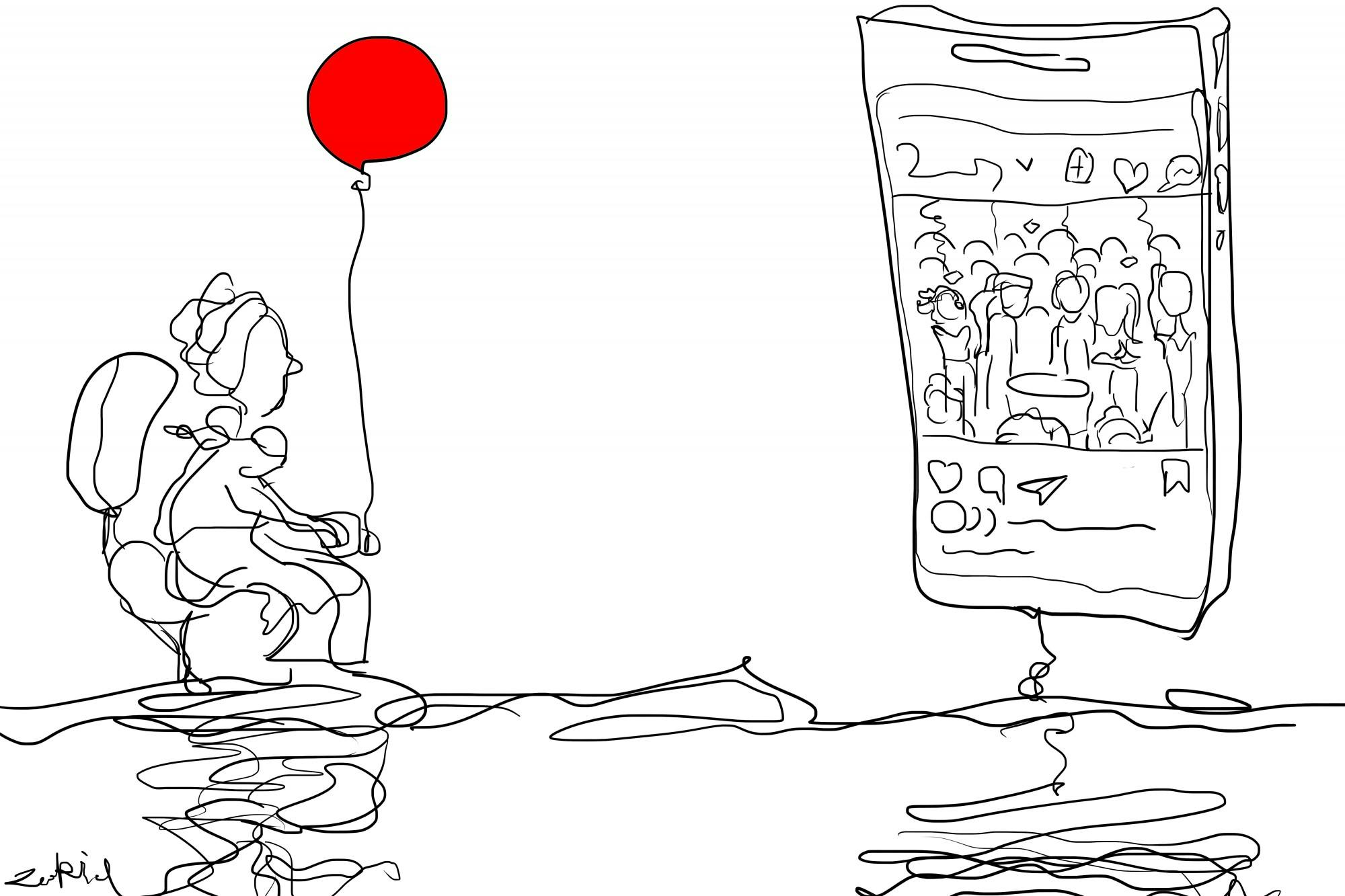When I opened social media over spring break, I was instantly greeted by hundreds of pictures of Dartmouth students swimming in crystal clear water, girls in matching bikinis and location tags broadcasting the names of Caribbean islands I’d honestly never heard of before. After spending hours scrolling through picture after picture, I deleted most of my social media apps, unable to look at people’s seemingly perfect vacations for any longer. I was experiencing a classic case of FOMO (fear of missing out).
Yet, I had no reason to feel as though I was missing out on the spring break experience. At the exact moment I was endlessly scrolling through social media, I was sitting in a beach house in Georgia. I had escaped the punishing cold of winter in New Hampshire, I was developing a sunburn from long walks on the beach and I was surrounded by my parents and my little brother, who I hadn’t seen since December.
Furthermore, I knew that I desperately needed time to recover over spring break, as I had ended winter term in a state of disarray. The massive sleep deficit I had accumulated over the term was quickly catching up to me, and I had a seemingly miles-long to-do list as academic responsibilities piled up. With my introverted personality, I knew I would only feel more stressed out — and accomplish none of what I needed to do — if I spent every minute of break surrounded by Dartmouth friends. If I didn’t take time for myself, I feared that I would return for spring term already burnt out — a recipe for academic disaster.
While the rational part of my brain recognizes that I made the right decision about my spring break plans, part of me still desperately longed to fit into the image of spring break that is so prevalent on social media. Logically, I know that social media is just a heavily edited compilation of the best moments of everyone’s spring breaks: No one posts pictures of themselves at the airport before an early flight, fighting with their friends or waking up feeling deathly ill after a long night out. However, it becomes much harder to keep this in perspective when in every single picture people seem to be glowing, surrounded by their best friends in front of jaw-droppingly beautiful scenery. In the moment, stuck scrolling, irrationality wins out and I fall for the trap of the highlight reel, endlessly comparing myself to these pictures and always coming up short.
Social media seems to have inextricably linked the idea of having fun with documenting it. I fear that if I come out of spring break without hundreds of perfectly edited photos to capture it, then my break is empirically less fun than others who have the photo evidence to prove it. Additionally, part of me worries that if I return to school without pictures to show my friends or fascinating anecdotes with which I can regale them, I will automatically be seen as less interesting. And though I know that my worth as a friend and a Dartmouth student does not depend on the extravagance of my vacation locale, when looking at social media, it becomes increasingly difficult to continue believing that this statement is true.
Above all, the main reason I feel as though I’m missing out by not going on a tropical vacation is the ubiquitous belief that college is the best four years of anyone’s life. Most of the graduation cards I received last May were covered in messages about how college was going to be filled with the most fun I’d ever experience, and that I should try to enjoy it while I could. This has been coupled with unsolicited advice from many of my family members explaining how if I don’t have all the fun that I possibly can now, I’m wasting my youth and will regret it later.
Once again, when I think rationally, I am certain that I will experience happy memories after leaving college; the ages 18-22 are just the beginning of my life, and they should not be the pinnacle of it. Yet, it’s easy to fixate on the prevalence of highlight reel pictures on social media and the endless advice pressuring me to have as much fun as I can in these four years. Combined, the two seem to trap me in an never-ending cycle of worry over the state of my spring break plans.
Going to Georgia with my family and then spending a week in my childhood bedroom in Indiana — though relaxing — do not match the stereotype that movies, influencers and even other Dartmouth students portray on social media about the ‘perfect’ spring break, filled with nothing but parties. I did not attend any parties over the break, and irrationally, I worry that this means I’ve already failed to maximize my fun-having potential while in college. This is an especially terrifying thought since apparently — according to all the advice I’ve been given — I only have these four short years to have fun before entering the joyless world of “real” adults.
Despite these fears, I’m trying my best to let the rational voice in my head win out. As Dartmouth admissions officers and alumni are fond of reminding us all, there’s no one ideal “Dartmouth experience.” If this holds true, as I believe it does, it also means that there cannot possibly be an ideal “Dartmouth spring break” experience. As spring term begins, I’m trying to keep this in mind. When my friends start asking what I did over break, I’ll share my unadventurous vacation with pride.




